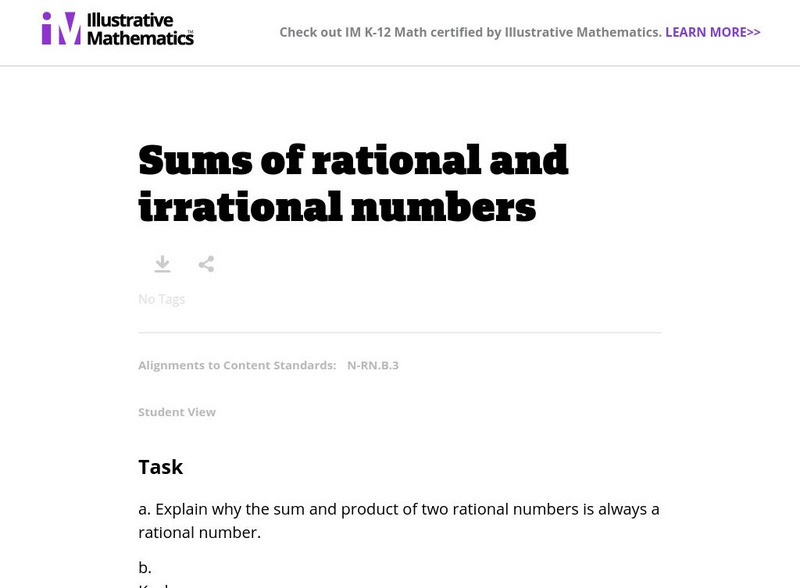Curated by
ACT
The goal of this task is to examine sums and products of rational and irrational numbers. One important property of rational numbers is that their decimals always terminate or repeat: using a slightly different formulation, a rational number is a number whose decimal eventually repeats. It follows that irrational numbers are those numbers whose decimals never repeat. It turns out that this characterization of rational and irrational numbers does not lend itself well to understanding what happens when numbers are added and multiplied. The definition of rational and irrational numbers, in terms of fractions, resolves these questions nicely. Aligns with HSN-RN.B.3.
3 Views
1 Download
CCSS:
Designed
Concepts
Additional Tags
adding rational and irrational numbers, cc by-nc-sa 4.0, ccss.math, creative commons attribution-noncommercial-sharealike 4.0, hsn-rn.b.3, illustrative mathematics: n-rn sums of rational and irrational numbers, illustrative mathematics: n-rn sums of rational and irrational numbers hsn-rn.b.3, oh.math.hsn.rn.3
Classroom Considerations
- Knovation Readability Score: 4 (1 low difficulty, 5 high difficulty)
- The intended use for this resource is Instructional|practice

